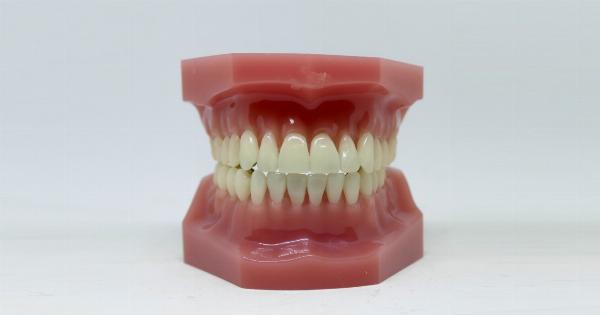Everyone wants a bright, white smile. Your smile says a lot about you, but sometimes, it can be hard to maintain that perfect shade.
Fortunately, there are a number of at-home teeth whitening methods to choose from, ranging from over-the-counter products to DIY remedies. Here are some of the most popular:.
Whitening Toothpaste
Whitening toothpaste is a popular and affordable way to maintain a brighter smile. Unlike other whitening methods, whitening toothpaste doesn’t contain bleach or peroxide, but it does have abrasives that help remove surface stains.
Pros:.
- Easy to use
- Affordable
- No sensitivity
Cons:.
- May not remove deep stains
- Takes longer to see results
- Can be abrasive and damage tooth enamel
Whitening Strips
Whitening strips are thin, flexible plastic strips coated with a peroxide-based whitening gel. They’re applied to the teeth for a specific amount of time, usually 30 minutes, once or twice a day.
Pros:.
- Easy to use
- Effective
- Convenient
Cons:.
- May cause sensitivity
- Can be expensive
- May not reach all areas of the teeth
Whitening Pens
Whitening pens are a convenient and portable way to brighten your smile. They’re small, easy to use, and can be applied on the go, anywhere, and anytime. They work by applying a peroxide-based gel to the teeth with a brush-on applicator.
Pros:.
- Easy to use
- Convenient
- Portable
Cons:.
- May cause sensitivity
- May not reach all areas of the teeth
- May take longer to see results
Baking Soda and Hydrogen Peroxide
Baking soda and hydrogen peroxide is a natural and inexpensive teeth whitening remedy. Baking soda acts as an abrasive, while hydrogen peroxide is a natural bleaching agent.
Mix the two together to create a paste, then brush your teeth with it for 2 minutes, twice a day for a week or two until you see results.
Pros:.
- Inexpensive
- Natural and safe
- Effective
Cons:.
- May cause sensitivity
- May take longer to see results
- Can be messy
Activated Charcoal
Activated charcoal is an absorbent material that can remove toxins and stains from the surface of the teeth. It’s also available in a toothpaste form for ease of use.
However, there’s not enough evidence to support its effectiveness in teeth whitening.
Pros:.
- Can remove surface stains
- May improve overall dental health
- Eco-friendly
Cons:.
- May not be effective
- May cause sensitivity
- May cause staining of clothes or sink
Oil Pulling
Oil pulling involves swishing oil in the mouth to remove toxins, bacteria, and stains from the teeth. Coconut oil is a popular choice, but any edible oil can be used. Swish the oil in your mouth for 20 minutes daily before brushing your teeth.
Pros:.
- May improve overall dental health
- Safe and natural
- May reduce gum inflammation and bad breath
Cons:.
- May not be effective
- May be time-consuming
- May cause discomfort or gagging sensation
Custom At-Home Whitening Trays
Custom at-home whitening trays are professional-grade teeth whitening trays you can use in the comfort of your own home.
They’re made to fit your teeth perfectly and come with a whitening gel you apply to the trays for a certain amount of time every day.
Pros:.
- Clinically proven
- Effective
- Customized to your teeth
Cons:.
- May cause sensitivity
- Can be expensive
- May take longer to see results
Laser Teeth Whitening
Laser teeth whitening is a professional-grade teeth whitening treatment performed in a dental office, but there are also home versions available.
Laser teeth whitening uses a special light to activate the whitening gel, which is applied to the teeth by a dental professional. Treatment usually lasts for about an hour.
Pros:.
- Fast and immediate results
- Professional grade
- Customized to your teeth
Cons:.
- Expensive
- May cause sensitivity
- Requires a visit to the dentist
Things to Consider
When considering which at-home teeth whitening method is right for you, consider your budget, the level of staining on your teeth, and any potential side effects or risks associated with each method.
Consult with your dentist to determine the best whitening method for your teeth.
Conclusion
Whether you’re looking for an affordable, on-the-go solution or a professional-grade treatment, there are plenty of at-home teeth whitening methods to choose from.
Take the time to research each method, and speak with your dentist before making any decisions.






























